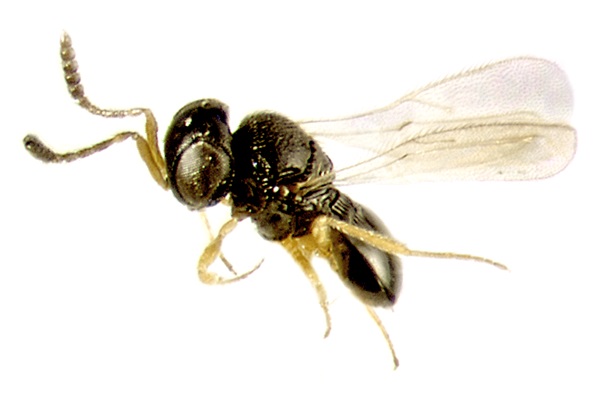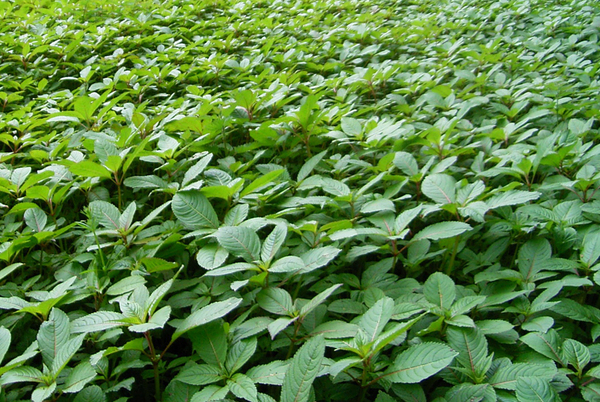Continuing the biological fight against a hardy foe – the maize-devastating western corn rootworm
CABI is continuing the fight against the maize-devastating western corn rootworm (Diabrotica virgifera virgifera) by collecting more than 22,000 live specimens of this chrysomelid beetle for further research into its biological control. Dr Stefan Toepfer has been busy in the maize fields of southern Hungary gathering the insects, which, of Mexican origin, have invaded many maize…
Scientists confirm first report of egg parasitoid in Africa to fight devastating fall armyworm
A group of scientists have confirmed the first report of an egg parasitoid Telenomus remus in Africa which could prove an important biological weapon in the fight against the devastating fall armyworm (Spodoptera frugiperda) that threatens the food security of more than 200 million people.
CABI scientists are leading the fight to control one of the UK’s most invasive weeds – Himalayan balsam
CABI experts in the field of classical biological control are leading the fight to manage one of the UK’s most invasive weeds – Himalayan balsam – thanks to the nationwide release of the rust fungus Puccinia komarovii var. glanduliferae. Dr Carol Ellison, who has over 30 years’ experience of the biological control of weeds using…
CABI updates International Soft Fruit Conference on fight against devastating invasive fruit fly
CABI scientist Dr Lukas Seehausen has updated delegates at the International Soft Fruit Conference in s-Hertogenbosch, in the Netherlands, on the very latest research in the fight against the devasting fruit fly Drosophila suzukii. Dr Seehausen, a research scientist in risk analysis and invasion ecology based at CABI’s Swiss centre in Delémont, said a biological control agent – the parasitoid Ganaspis…
Controlling the European earwig on the Falklands
Contributed by Norbert Maczey, CABI The European Earwig, Forficula auricularia (order Dermaptera) was recently introduced to the Falkland Islands and has since become locally common in Port Stanley and a number of settlements in both East and West Falkland. Since its introduction this invasive species has caused considerable problems ranging from yield losses in horticulture…
CABI releases rust fungus to control invasive weed, Himalayan balsam
26 August 2014 – From today, not-for-profit research organization, CABI, will be releasing a rust fungus at locations in Berkshire, Cornwall and Middlesex as part of field trials to control the non-native, invasive weed Himalayan balsam (Impatiens glandulifera) using natural means. Himalayan balsam has rapidly become one of the UK’s most widespread invasive weeds, colonizing…
The XIV International Symposium on the Biological Control of Weeds, Kruger National Park, South Africa, March 2014
In March 156 delegates from 24 countries travelled to the Kruger National Park in South Africa to attend the XIV International Symposium on Biological Control of Weeds (ISBCW) which was held at the Nombolo Mdhuli situated in the Skukuza Camp (2 – 7 March 2014). This quadrennial international symposium is a prestigious conference which provides…
CABI welcomes EU action against invasive species
CABI welcomes action that the EU has recently taken (September 9, 2013) to protect member states against the adverse impacts of Invasive Alien Species (IAS). The draft Regulation on the prevention and management of the introduction and spread of IAS will help to coordinate management and preventative measures across the whole of the EU, leading to…
- « Previous
- 1
- 2
- 3
- 4






